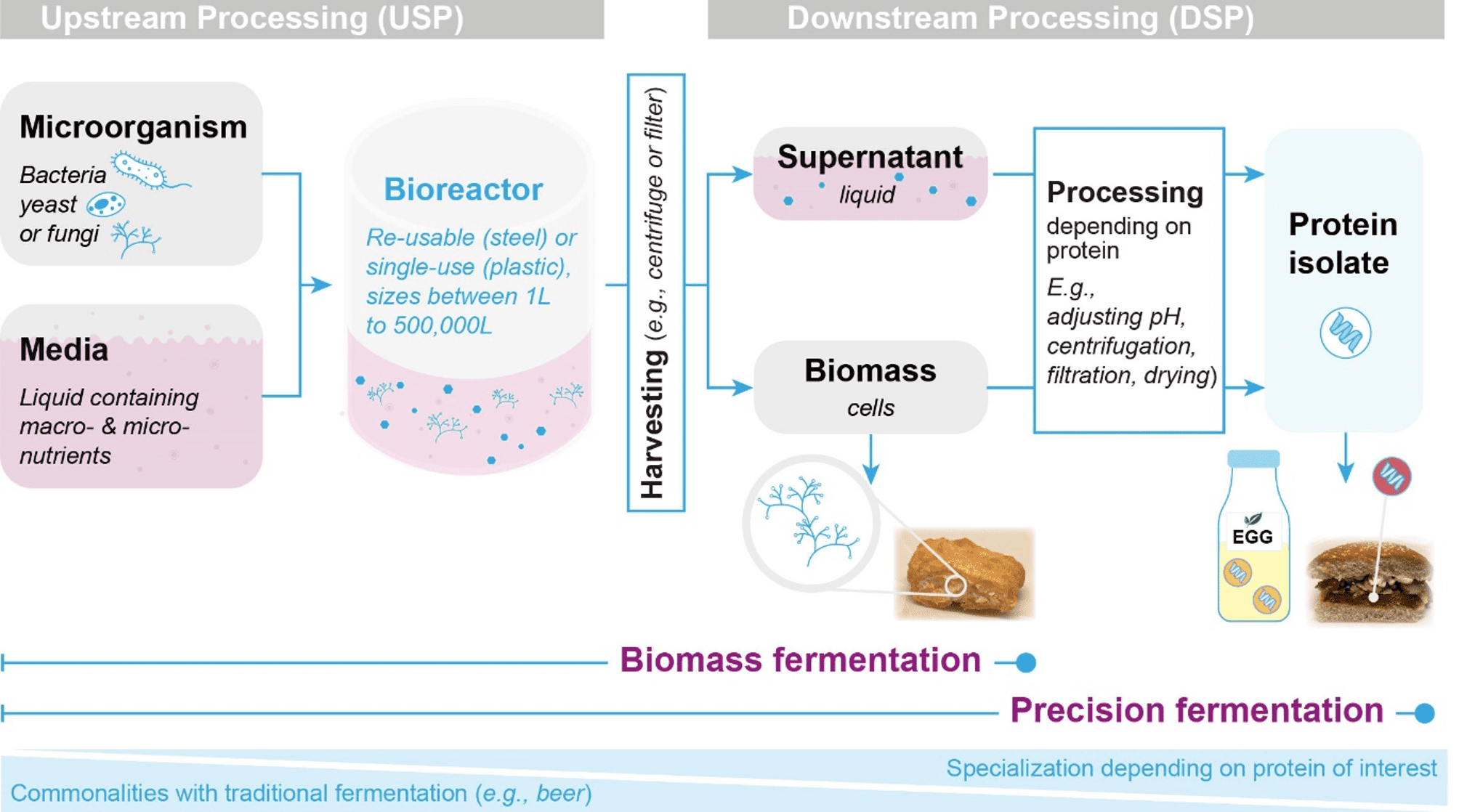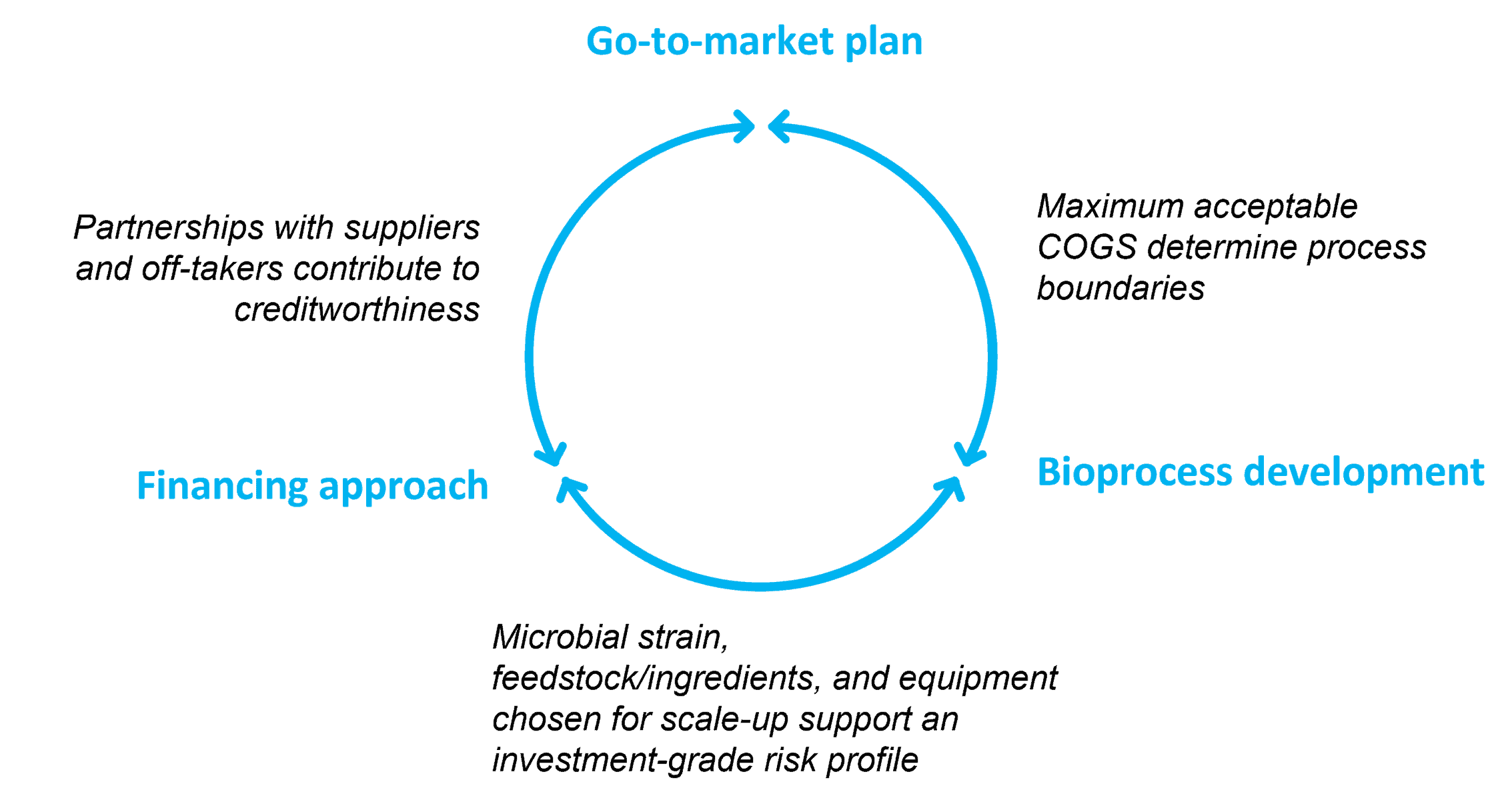[ad_1]
Biomanufacturing or biobased production (the production of food, materials, and other products by microorganisms) is a cornerstone for a more sustainable, healthier, and resilient economy, i.e., the bioeconomy.
Some biomanufacturing processes already exist in pilot projects, such as the production of food ingredients like egg protein (EVERY) or natural colours (Chromologics), or the production of materials like vegan leather (Polybion) or sustainable cement (Biomason). Biomanufacturing of drugs, such as insulin, is well established in the pharmaceutical industry with small product volumes and high costs.
However, scaling biomanufacturing for food and materials to industrial volume and cost levels is the next key step in building the bioeconomy. The report, “To make the Bioeconomy real, develop for scalability and creditworthiness,” was published by Swiss impact investor Blue Horizon and Italian CDMO Olon and is aimed at founders, investors, researchers and legislators in the fledgling bioeconomy. The report highlights three courses of action to scale up biomanufacturing.

The first approach is based on the fact that the go-to-market strategy determines the selling price of the product, and therefore the maximum acceptable manufacturing cost for the biomanufacturing process. Iteration between go-to-market strategy and bioprocess development thus forms the basis for any bioeconomy business plan. Where demand elasticity is low and cheaper alternatives are lacking, higher manufacturing costs may be temporarily acceptable; however, in more mature markets, firms with chronically high manufacturing costs will often be left chasing elusive premia.
Making or breaking scalability
Second, strain selection and process development are a multi-parameter optimization challenge. Choosing between the three most used types of microorganisms (and possibly the many more novel ones), selecting media ingredients, and deciding whether to scale up or to scale out all need to be considered in context. These choices are what makes or breaks scalability of the process – thus, the likelihood of success increases if the biomanufacturing process is developed with scale in mind.
Third, scaled-up biomanufacturing processes need scaled-up infrastructure to run on, and financing such innovative infrastructure poses a sizeable challenge. Possible sources of capital range from shareholders’ equity, public subsidies and grants to various forms of debt – any and all of them will likely be needed. Where this financing journey is sketched out early, businesses can be built with creditworthiness in mind, unlocking access to lower cost of capital.

The full report covers all three aspects of bioeconomy in detail along with additional thoughts and examples. Additionally, throughout the conclusion portion of the report, there is a clear definition of what the various different interested parties can do in order to further the expansion of bioeconomy.
The five different groups described include researchers, founders, governments, investors, and lenders. Each is followed through with a brief summary of their recommendations. It is the belief of the authors that in coordinating these five different factions to scale up the bioeconomy, the financial opportunity and potential for positive impact on planet, humans, and animals are vast.
Blue Horizon is accelerating the transition to a New Sustainable Food System that delivers outstanding returns for investors and the planet. The company is a global pioneer of the Future of Food. As a pure-play impact investor, Blue Horizon has shaped the growth of the alternative protein and food tech market. The company invests at the intersection of biology, agriculture and technology with the aim to transform the global food industry. Blue Horizon was founded by Roger Lienhard in 2016 and is based in Zurich. To date, the company has raised over USD 850 million and invested in more than 60 companies. Its business model offers an attractive opportunity to invest in the evolution of the global food system while contributing to a healthy and sustainable world. www.bluehorizon.com
[ad_2]
Source link
